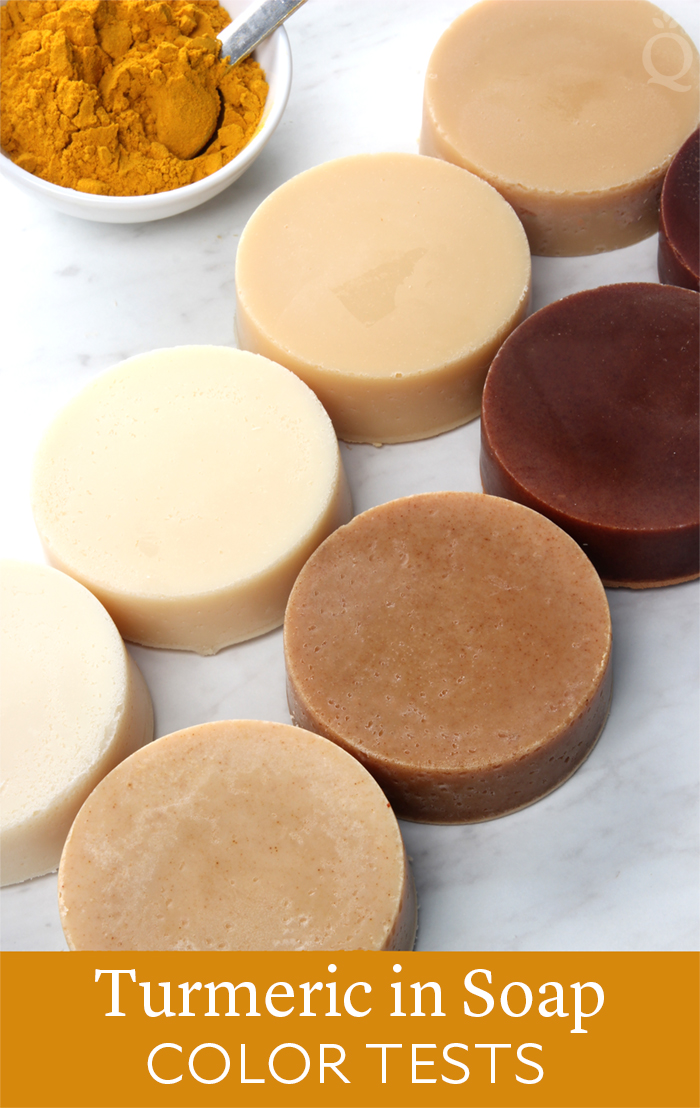
Turmeric is a bright yellow powder commonly used in cooking, dyeing fabrics, and beauty products. It gives cold process soap a range of color from soft yellow to burgundy depending on how much is used. Turmeric can be added directly to cold process soap at trace, or it can be infused with oil.
If you’re curious how to incorporate turmeric into your cold process soap recipe, this post is here to help. We tested adding the turmeric powder to soap versus a turmeric oil infusion. The soaps in these experiments were gelled to help the color pop.
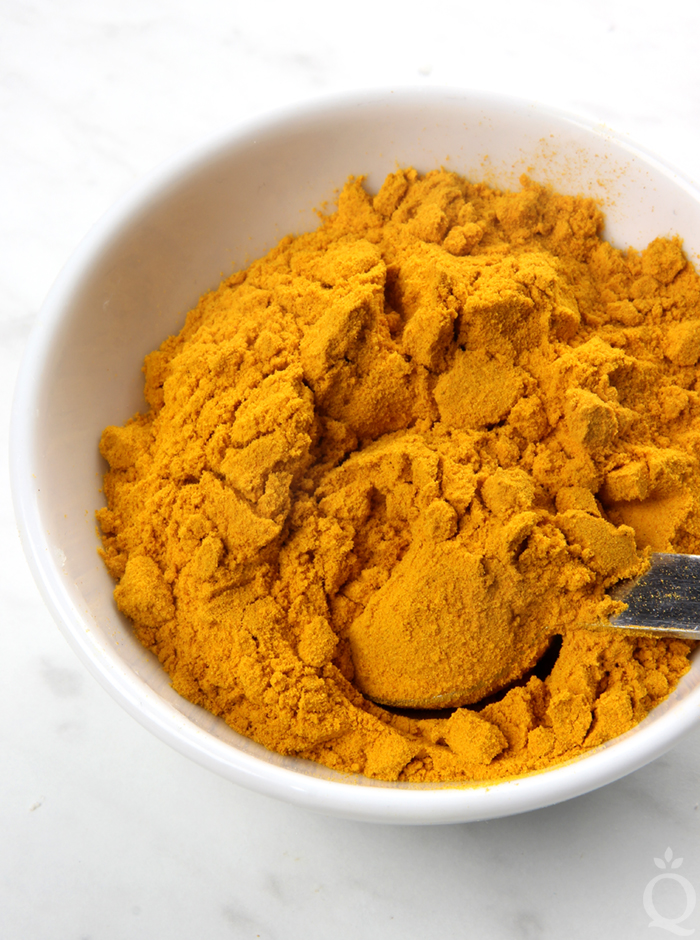
First, let’s review how to infuse soapmaking oils. Infusing oil with herbs and powders is a simple process. To avoid potential contamination by bacteria, completely dry herbs and powders are always recommended. A usage rate of at least 2 tablespoons of herbs for every 4 ounces of oil is common. For a stronger color, use 1 tablespoon of herbs or powder per ounce of oil.
The type of oil is up to you. In this instance, we used sweet almond oil. Liquid oils are recommended to prevent hardening during the infusion process. If the purpose of your infusion is color, a light-colored oil is recommended. If you make large batches, an oil with a longer shelf life is best. Learn more about various soapmaking oils here.
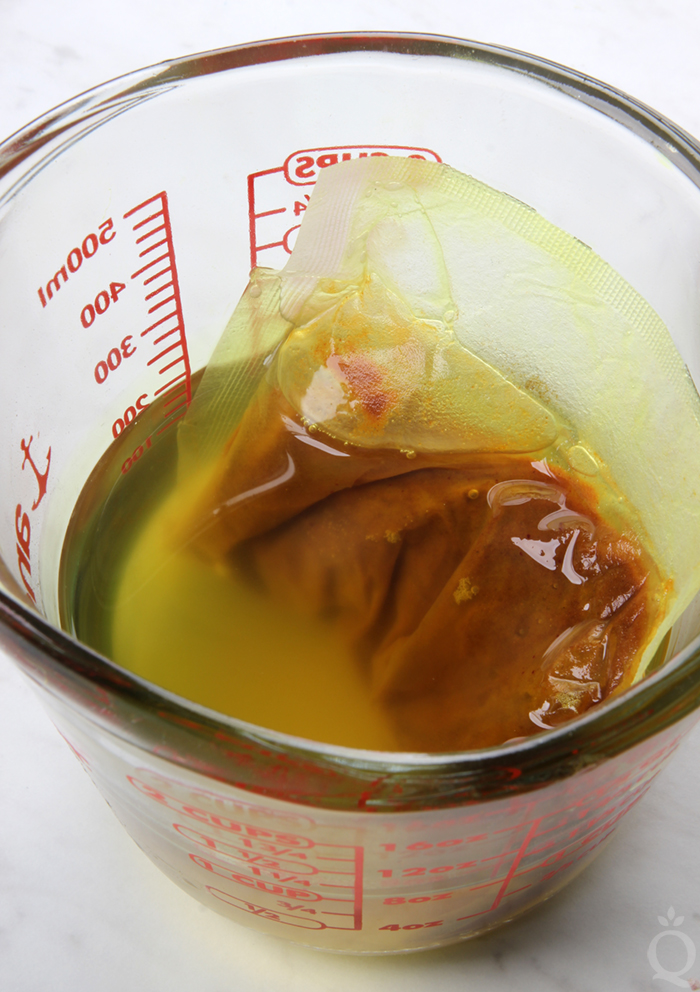
For this turmeric infusion, we wanted the color to be nice and strong, so we used 1 tablespoon of turmeric per ounce of oil. In this instance, that meant 6 tablespoons of turmeric for 6 ounces of sweet almond oil.
Place the turmeric powder into the Large Sealable Tea Bag, and use an iron to seal it shut. Measure 6 ounces of sweet almond oil (or oil of your choice) into a heat-safe container. Heat the oil in the microwave using 20-to 30-second bursts until it reaches about 140° F. Be careful when removing the container from the microwave. Place the turmeric into the hot oil.
Allow the turmeric to stay in the oil for 2-3 hours. Then, microwave the container for 30-60 seconds until the oil is hot again. Keeping the oil warm or hot during this process allows the turmeric to color it faster. You could also use a Crock-Pot, as demonstrated here. After the turmeric and oil have infused for at least 6 hours, remove the turmeric and gently squeeze out excess oil. The oil is now ready to use! Handle with care, because turmeric-infused oil can stain various surfaces.
Below, you can see how the turmeric-infused oil behaves in cold process soap when added at trace, giving it a very soft, orange color. The soap below did go through gel phase, which helps the color to become more saturated.
Turmeric Infusion in Cold Process Soap
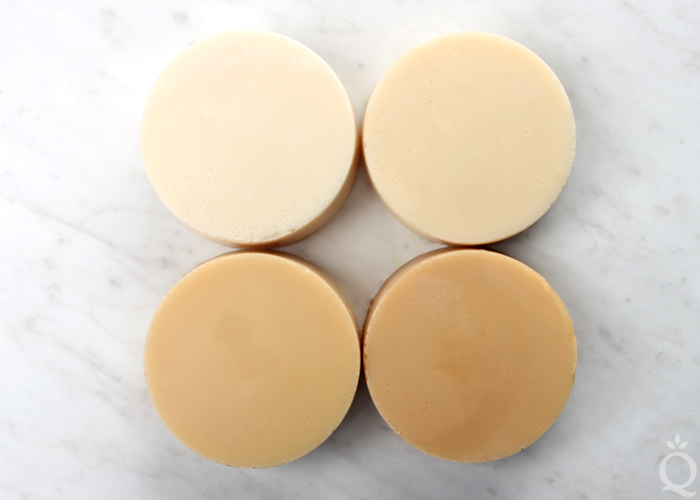
Top row, left to right: 1 tsp. turmeric infusion per pound of soap, 2 tsp. turmeric infusion per pound of soap
Bottom row, left to right: 4 tsp. turmeric infusion per pound of soap, 8 tsp. turmeric infusion per pound of soap
We also tested adding turmeric powder directly to the soap at trace. The powder was dispersed in sweet almond oil to help get rid of clumps, with a rate of 1 teaspoon of turmeric powder into 1 tablespoon of oil. To clarify, the results below are not 1 teaspoon of dispersed turmeric. Rather, we dispersed 1 teaspoon of turmeric and added the entire dispersion into 1 pound of soap.
Dispersed Turmeric Powder in Cold Process Soap
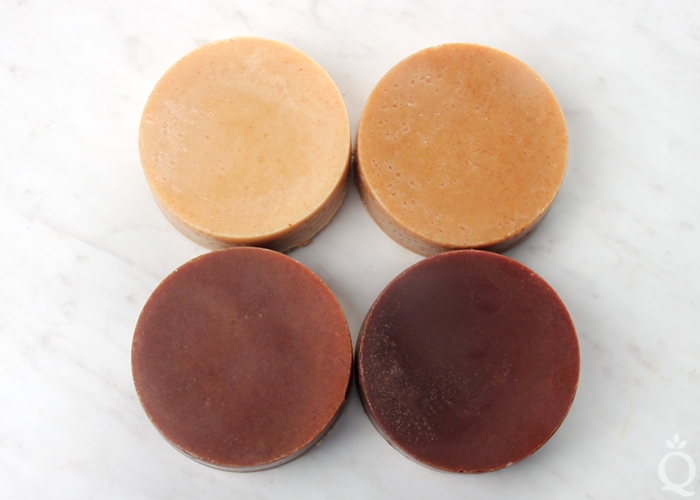
Top row, left to right: 1 tsp. turmeric per pound of soap, 2 tsp. turmeric per pound of soap
Bottom row, left to right: 4 tsp. turmeric per pound of soap, 8 tsp. turmeric per pound of soap
You can see that adding turmeric powder into cold process soap batter adds a deeper color to the soap than the turmeric infusion. The turmeric infusion did give the bars a smooth color, without speckles. How do you like to incorporate turmeric into your cold process soap?